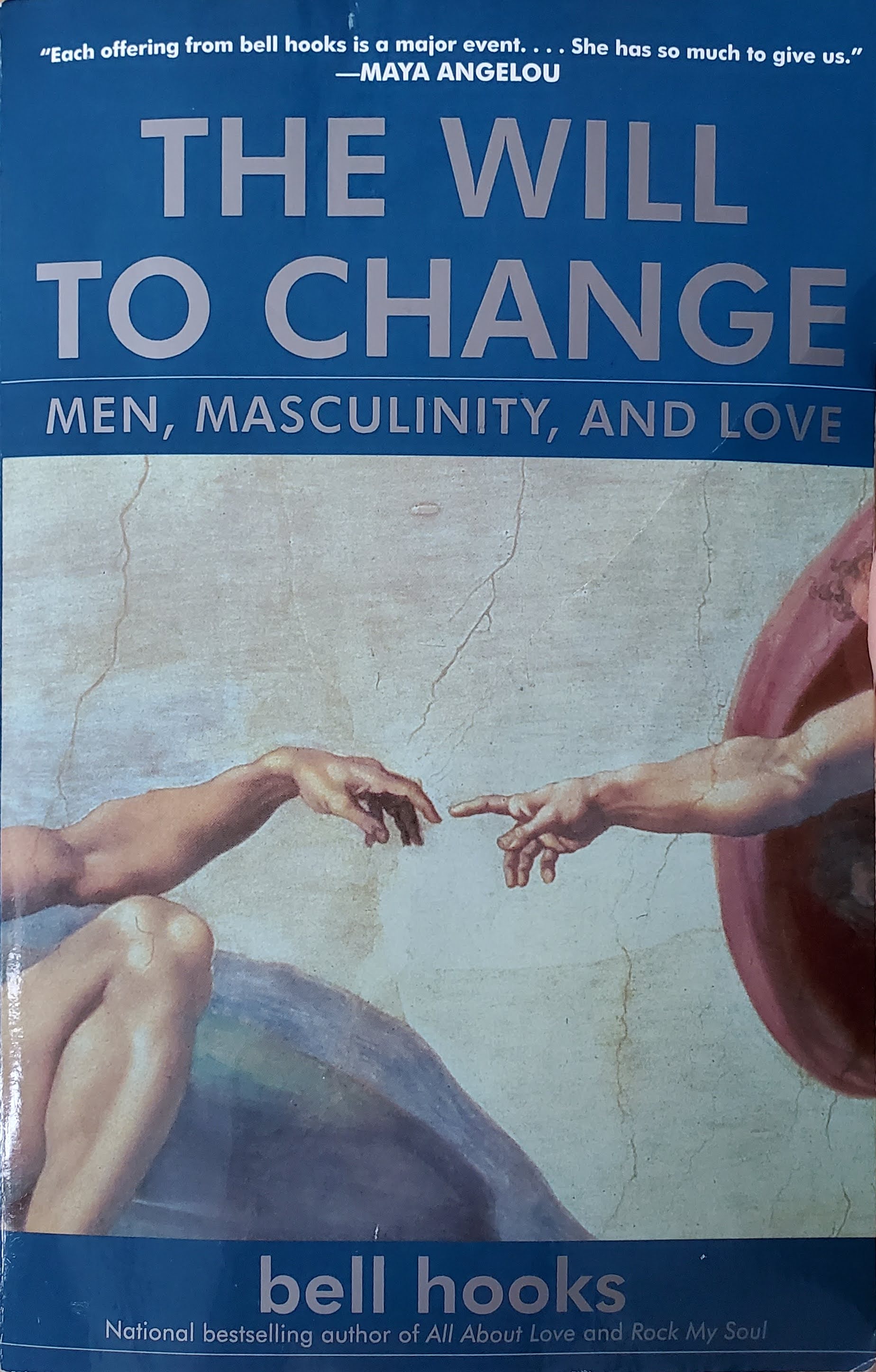
The Will To Change
Men, Masculinity, and Love
This was the first bell hooks book I've ever read, and it was excellent. I'm glad I started with it. I've only ever engaged with her work as a collection of quotes, but they are incredibly clear and cutting. Having them speak extendedly on men and the interlocking problems of patriarchy was very helpful.
selected quotes
They learn then to settle for whatever positive attention men are able to give. They learn to overvalue it. They learn to pretend that it is love. —pg 2
The contemporary presence of female-headed households has led many people to assume that children in these households are not learning patriarchal values because no male is present. They assume that men are the sole teachers of patriarchal thinking. Yet many female-headed households endorse and promote patriarchal thinking with far greater passion than two-parent households. Because they do not have an experiential reality to challenge false fantasies of gender roles, women in such households are far more likely to idealize the patriarchal male role and patriarchal men than are women who live with patriarchal men every day. —pg 23-24
Patriarchy promotes insanity. —pg 30
The crisis facing men is not the crisis of masculinity, it is the crisis of patriarchal masculinity. Until we make this distinction clear, men will continue to fear that any critique of patriarchy represents a threat. —pg 32
To end patriarchy we must challenge both its psychological and its concrete manifestations in daily life. There are folks who are able to critique patriarchy but unable to act in an unpatriarchal manner. —pg 33
- I wrote "me" in the margin
Many antipatriarchal parents find that the alternative masculinities they support for their boy children are shattered not by grown-ups but by sexist male peers. —pg 42
Since patriarchal parenting does not teach boys to express their feelings in words, either boys act out or they implode. —pg 42
Even when it becomes evident that the fantasy will not be fulfilled, that the "father wound" will not be healed, boys hold on to the longing. It may give them a sense of quest and purpose to feel they will someday find the father or, through having children, become the father they dream about. —pg 49
"...Trapped by a world that tells them boys should not express feelings, teenage males have nowhere to go where grief is accepted." As much as grown-ups complain about adolescent male anger, most adults are more comfortable confronting a raging teenager than one who is overwhelmed by sorrow and cannot stop weeping. Boys learn to cover up grief with anger; the more troubled the boy, the more intense the mask of indifference. Shutting down emotionally is the best defense when the longing for connection must be denied. —pg 50
Emotionally abandoned by parents and by society as a whole, many boys are angry, but no one really cares about this anger unless it leads to violent behavior. If boys take their rage and sit in front of a computer all day, never speaking, never relating, no one cares. —pg 50
And until that culture changes, we must create the subcultures, the sanctuaries where boys can learn to be who they are uniquely, without being forced to conform to patriarchal masculine visions. —pg 54
Men who may have seeds of negativity and domination within them along with positive traits may find the negative burgeoning at times of crisis in their lives. —pg 58
- I wrote "my father w/ construction woes" in the margin
The first act of violence that patriarchy demands of males is not violence toward women. Instead patriarchy demands of all males that they engage in acts of psychic self-mutilation, that they kill off the emotional parts of themselves. If an individual is not successful in emotionally crippling himself, he can count on patriarchal men to enact rituals of power that will assault his self-esteem. —pg 66
Citation
bell hooks. The Will To Change: Men, Masculinity, and Love. 2004. Printed Book.